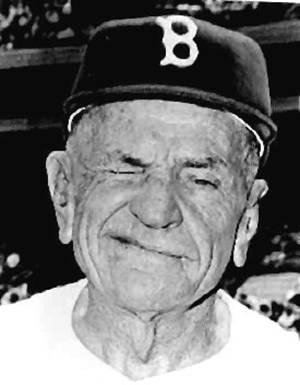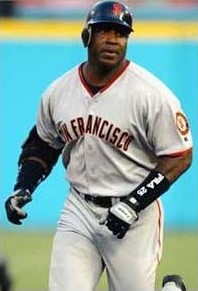|
Something Has Passed From the Game By Gerald Eskenazi |
|
|
"The Old Professor,"
Casey Stengel. |
Roger Clemens, losing his lustre.
Barry Bonds, anti-hero. |
|
By Gerald Eskenazi Long before A-Rod made
$!6,000 an inning, and Roger Clemens didn’t take steroids (but his wife did,
prepping for a Sports Illustrated swimsuit issue), we loved our athletes. And
I’m not talking about the affection from the guy in the street—I’m including
my colleagues, the sportswriters. Why, even Congress loved
sports—as did the Supreme Court. The wise men ruled in 1922 that baseball was
exempt from anti-trust laws because it was a local, not interstate, endeavor. But 50 years ago,
Senator Estes Kefauver summoned Casey Stengel, and his fabled switch-hitter,
Mickey Mantle, to a hearing on the game. This is an edited exchange
among the courtly Senator, the befuddling, and syntax-challenged Stengel, and
Mantle, the Oklahoma farm boy: Kefauver: “Why is it
baseball wants this bill passed?” Stengel: “I would have to say at
the present time, I think that baseball has advanced in this respect for the
player help. That is an amazing statement for me to make, because you can
retire with an annuity at fifty and what organization in America allows you
to retire at fifty and receive money. I would say the reason the owners would
want it passed is to keep baseball going as the highest paid ball sport that
has gone into baseball and from the baseball angle, I am not going to speak
of any other sport. I am not here to argue about other sports, I am in the
baseball business. It has been run cleaner than any business that was ever
put out in the one-hundred years at the present time. I am not speaking about
television or I am not speaking about income that comes into the ball parks:
You have to take that off. I don't know too much about it. I say the
ballplayers have a better advancement at the present time.” Kefauver: “Mr. Mantle, do you have any observations
with reference to the applicability of the antitrust laws to baseball?” Mantle:
“My views
are about the same as Casey's.” Laughter from the Senators and the gallery. Contrast that with the confrontational tone that marked baseball’s
recent hearings over steroid use—indeed, it seemed to devolve into party
lines, with the Republicans backing the highly paid Clemens and the Democrats
in the corner of the working stiff who used to inject him. Not too long
before that, Congress took a look into that “wardrobe malfunction” in the
Super Bowl broadcast that now, just a few years later, seems so naïve and
unimportant. Our love affair with our athletes had never been problematic until
Nixon came along. Everything the public knew of our sports heroes came from
us, the journalists. Consider the source. There was a funny, quirky columnist
for The New York Post, when I was just starting out in the Sixties, named
Jerry Mitchell. After the obligatory few drinks at a post-game bar, Mitch
would tell us about his baseball travels—such as the time he actually roomed
in a sleeper car with Satchel Paige. That came about because Mitchell was
traveling with the Giants and Indians, who were barnstorming through the
Southwest in spring training. Paige was on the Indians. One night (I’m sure it was late), Mitch came back to his bunk—the
train was on a siding for the night. As he opened the door, he heard an
agitated Paige call out, “Who’s that?” When Mitchell told the famed pitcher,
Paige replied, “Get out—my wife’s visiting me!” “I found out he had a ‘wife’ in every town,” Mitchell chortled in
retelling the story. So we were pretty close to the subjects we were writing about.
Actually, so were the political writers. Then came Watergate, and Nixon
and…well, all of us in the business know the rest. Politicians became fair
game, as did every public figure—including our one-time heroes, the great
athletes. Now, one agent tells me, “I spend more time on paternity suits than on
contracts.” And the National Basketball Association has to deal with the fact that
one-fourth of its drafted players has been through the criminal-justice
system. Our heroes see their names in the papers these days for everything
from being at the scenes of drive-by shootings, to brawls in strip clubs, to
spousal abuse. The Internet, and You Tube makes it impossible to hide—even if
reporters these days were inclined to overlook the feet of clay of many of
the athletes they write about. It used to be so easy being a baseball fan. Back in Brooklyn—yeah, we
used to have a ball team there—we spent those muggy summer nights at the
candy store arguing over statistics, numbers that take on an importance in baseball
that rival mathematicians who understand e=mc2. But first it was Barry Bonds who tortured us as he approached
“755”—Hank Aaron’s record number of career home runs. For him, for Clemens,
for all those other ‘roids who tampered with our fixation with fixed numbers,
there has been a melancholia among sports fans everywhere. For when you take away a cherished number from baseball fans, you tear
away a part of what they love. In no other sport are statistics as much a part of the game as the
game itself. Archimedes himself never got a measurement as elegant as 60 feet
6 inches between pitcher and batter. Many of the great numbers already have
been surpassed, but we accepted them, albeit grudgingly. Gone, forever, is
“60,” Babe Ruth’s single-season home run number. Strewn among the winds of
history is “2,130,” the number of consecutive games played by Lou Gehrig. The
persnickety Ty Cobb lost his “96,” his single-season stolen-base record.
Perhaps the only magic number left is “56,” the number of consecutive games
in which Joe DiMaggio hit safely. Baseball—with its season’s preparation beginning in the winter, then
stretching 162 games over the spring, summer, and fall—fills our heads with
numbers. There are assists, there are putouts, there are balls, there are
strikes, there are sacrifice flies, intentional walks, innings pitched,
on-base average, slugging percentage, caught stealing. In recent years baseball intellectuals have created such
arcane definitions as “quality starts.” You get the picture. But with all
these, some stick out more than others. The great numbers are often what
decide arguments over who is the greatest. You can’t argue with numbers. As
Stengel the one-time Glendale, Calif., banker, used to say, “You could look
it up.” Something is gone from the game. Maybe it’s our innocence. Yet, my confession as a voter for the Baseball Hall of Fame: I
will--unhappily--vote for Bonds, the anti-hero, and Clemens, the pathetic
liar. For even before the suspicions took root, they were extraordinary
players. Hard to imagine, but many of my sportswriting predecessors never
voted for Ted Williams as their top choice because, quite simply, they didn't
like him. (Twenty of the 302 voters left him off the ballot!) Would we feel differently about Barry and Roger if the steroids thing
hadn't come up? As Hemingway, a DiMaggio fan, has Jake Barnes conclude in
"The Sun Also Rises": "Isn't it pretty to think so?" |
|


